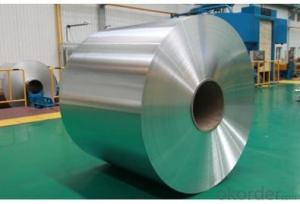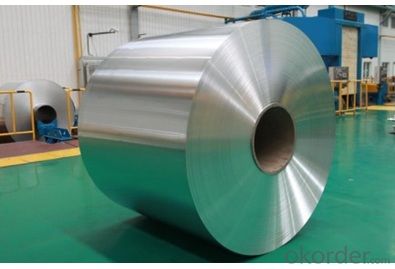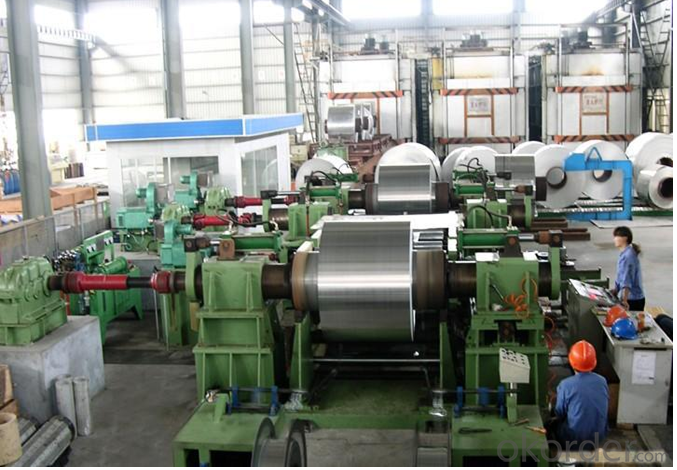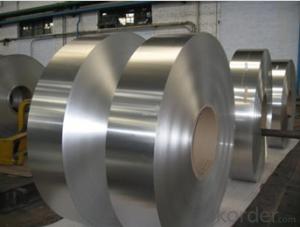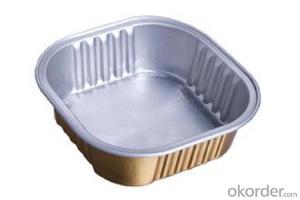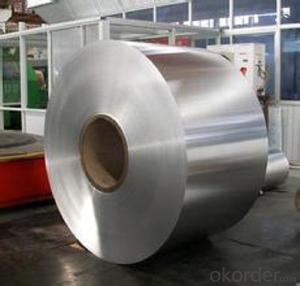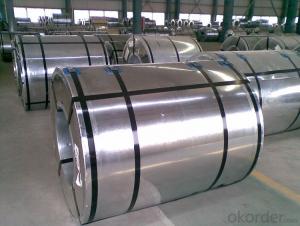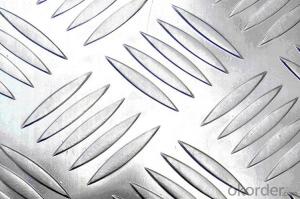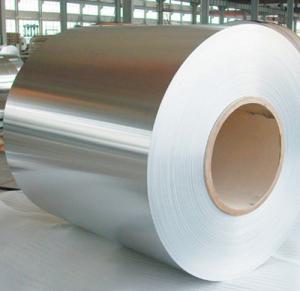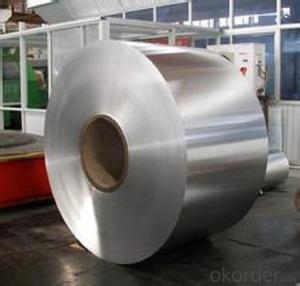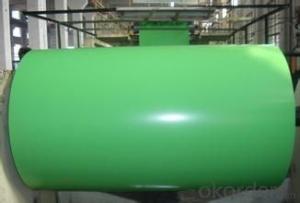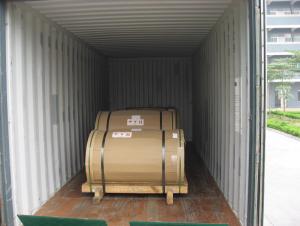Ruud Air Conditioner Aluminum Coil - See Larger Image High Quality All Applications and Sizes Finished Aluminum Coils
- Loading Port:
- China main port
- Payment Terms:
- TT OR LC
- Min Order Qty:
- 10 m.t.
- Supply Capability:
- 1000 m.t./month
OKorder Service Pledge
OKorder Financial Service
You Might Also Like
Specification
Description of Aluminium Coil
1 | Alloy | 3003 3004 3005 3105 |
2 | Temper | O H12 H14 H24 H16 H26 H18 H112 F |
3 | Thickness | 0.2mm-10mm |
4 | Width | 500-2200mm |
5 | ID | 508mm 405mm 305mm 150 mm 75mm |
6 | Standard | GB/T,EN,ASTM |
7 | Weight | 1.0 to 5.0 ton/coil or by buyer’s option |
8 | Surface | Mill,Bright, polished, brush, checkered, embossed, etc. |
9 | Payment term | TT,LC,DP,western union,etc |
10 | Price term | EXW,FOB,CFR,CIF,etc |
11 | HS CODE | 76061199 |
12 | Delivery time | According to order’s quantity |
13 | Packing | 1.with wooden pallet packing. 2.standard fumigated wooden package. 3.other packing methods by customer's requirement. |
14 | Export to | Singapore,Indonesia,Ukraine,Korea,Thailand, Viet Nam, Saudi Arabia, Brazil, Spain, Canada, USA, Egypt, Iran, India, Kuwait, Dubai, Oman, Kuwait, Peru, Mexico, Iraq,Russia,Malaysia, etc. |
15 | Contact | If you have any question, please feel free contact me |
16 | Application | 1) Kitchenware, food and chemical products processing and storage devices; 2) Aircraft fuel tanks, oil pipe, rivets, wire; 3) Cans cover, car body panels, steering plates, stiffeners, brackets and other components; 4) Manufacturing trucks, tower building, ship, train, furniture,machinery parts, precision machining with the tubes, rods, shaped, sheet metal. |
The Main Features of Aluminium Coil:
High quality with competive prices.
Wide product range of choice.
We are specific manufacture and control.
The Images of Aluminium Coil:
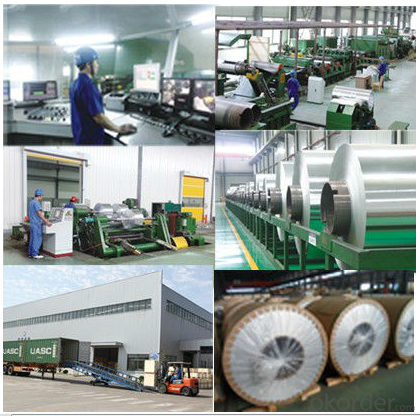
FAQ:
1. Minimum Order Quantity? MOQ is 25 tons, your quantity is ok, the aluminium foil sample is available. |
2. What kind of terms of payment? T/T, L/C,D/A,D/P,Western Union are available. |
3. What grams of the product can you offer? Our products can be customized according to your requirment |
4.Can you do Customization & Reproduction if I provide a photo? Yes, we do Customization & Reproduction service, please check the details and sample above. You need to send the pictures to our email, tell us the specification you want, then we will quote you exact price. We will take photos for you check. |
5. Does the packaging safe and arrive in good conditions? Yes, Safe Packing guarrantee, all the products will arrive your door under good conditions. We response to problem of shipping if there unfortunately is. |
6. How long does it usually take to deliver the product? We'll make the shipment to you immediately. It will take about 18 to 40 days arrive worldwide. Accurate delivery time depends on the specific quantity |
7.Is drop shipping abailable? Yes, it is, we can send to worldwide. |
- Q: What are some common types of aluminum coils used in various industrial applications?
- <p>Yes, there are several types of aluminum coils commonly used in industry. These include: 1) Plain aluminum coils, which are used in packaging and construction. 2) Embossed aluminum coils, utilized for decorative purposes and in the automotive industry. 3) Painted aluminum coils, often used in building materials and appliances. 4) Galvanized aluminum coils, which are corrosion-resistant and used in exterior applications. 5) Heat-treated aluminum coils, known for their strength and used in aerospace and automotive parts. Each type serves specific purposes based on the properties of the aluminum and the coatings or treatments applied.</p>
- Q: Which companies will use aluminum sheet and coil?
- Plants to make auto parts such as exhaust pipe thermal baffle, muffler thermal baffle and front thermal baffle.
- Q: Are there any specific regulations for the disposal of aluminum coil waste?
- Yes, there are specific regulations for the disposal of aluminum coil waste. The disposal of aluminum coil waste is subject to various environmental regulations to ensure proper handling and prevent any potential harm to the environment and human health. One of the key regulations is the Resource Conservation and Recovery Act (RCRA) in the United States. Under this act, aluminum coil waste is considered a hazardous waste if it exhibits certain characteristics such as ignitability, corrosivity, reactivity, or toxicity. If the waste meets these criteria, it must be managed as hazardous waste and disposed of in accordance with RCRA regulations. This may involve treatment, storage, and disposal at an approved hazardous waste facility. Additionally, the Environmental Protection Agency (EPA) has established guidelines for the disposal of non-hazardous aluminum coil waste. These guidelines typically require proper storage, labeling, and transportation of the waste to an authorized disposal facility. The disposal facility should be equipped to handle and process the waste in an environmentally responsible manner. In many countries, including the United States, local, state, and federal regulations may also apply to the disposal of aluminum coil waste. These regulations may vary depending on the specific location and the nature of the waste. It is crucial for businesses and individuals involved in the disposal of aluminum coil waste to familiarize themselves with the applicable regulations to ensure compliance and avoid potential penalties. Overall, it is important to follow the specific regulations for the disposal of aluminum coil waste to protect the environment, prevent pollution, and ensure the safety of individuals involved in waste management.
- Q: Are there any limitations to the minimum coil width of aluminum coils?
- Limitations exist for the minimum coil width of aluminum coils due to various factors, such as the manufacturing process and equipment used. Generally, the coil width is restricted by the capabilities of the rolling mill or other processing machinery. The minimum coil width is typically determined by the size of the rolls or mandrels utilized during production. If the coil width becomes too narrow, it can lead to stability and integrity issues, making handling and transportation more challenging. Furthermore, a narrower coil width may impact the overall efficiency of the manufacturing process. Hence, it is crucial to take these limitations into account when establishing the minimum coil width for aluminum coils.
- Q: Can aluminum coils be used for food processing conveyor systems?
- Yes, aluminum coils can be used for food processing conveyor systems. Aluminum is a popular choice for conveyor systems in the food processing industry due to its various beneficial properties. Firstly, aluminum is a lightweight material, which makes it easier to install and transport. This is particularly important for conveyor systems that may require frequent reconfiguration or relocation. Additionally, aluminum has excellent corrosion resistance, which is crucial in food processing environments where exposure to moisture, chemicals, and food particles is common. Furthermore, aluminum is a hygienic material that is easy to clean and maintain, ensuring food safety standards are met. Lastly, aluminum coils can be easily formed and customized to fit specific conveyor system requirements, allowing for efficient and effective food processing operations. Therefore, aluminum coils are a suitable choice for food processing conveyor systems.
- Q: Can aluminum coils be used in electrical conductors?
- Yes, aluminum coils can be used in electrical conductors. Aluminum is a highly conductive metal, second only to copper in terms of electrical conductivity. It possesses excellent electrical properties, making it suitable for use in various electrical applications, including the production of coils. Aluminum coils are commonly used in electrical conductors for applications such as transformers, motors, generators, and power transmission lines. They are lightweight, cost-effective, and offer good thermal conductivity. However, it is important to note that aluminum has a lower tensile strength compared to copper, so proper design considerations must be taken into account to ensure the coil's stability and durability. Additionally, aluminum coils may require larger cross-sectional areas compared to copper coils to achieve the same electrical performance.
- Q: What specific tools are required for handling and working with aluminum coils?
- <p>Working with aluminum coils typically requires specialized tools to ensure safety and efficiency. These include cutting tools like metal snips or shears designed for aluminum, which are crucial for cutting the coils without damaging them. Additionally, a coil carrier or uncoiler is necessary for handling and unrolling the coils without causing injury or deformation. Protective gear such as gloves and safety glasses is also essential to prevent injuries from sharp edges or debris. For more precise work, a metal straightener or leveling machine may be needed to correct any warping in the aluminum coils.</p>
- Q: Are aluminum coils suitable for air conditioning systems?
- Yes, aluminum coils are suitable for air conditioning systems. Aluminum coils are commonly used in air conditioning systems due to their many advantages. Firstly, aluminum is a lightweight material, making it easier to handle and transport during installation. This also reduces the overall weight of the unit, making it more energy-efficient. Furthermore, aluminum coils have excellent heat transfer properties, allowing for efficient cooling of the air. They provide enhanced thermal conductivity, which helps in transferring heat quickly and effectively. This results in better cooling performance and improved energy efficiency, reducing electricity consumption and saving costs in the long run. Aluminum coils also offer superior corrosion resistance compared to other materials like copper. This is important in air conditioning systems, as they are exposed to moisture and humidity. Aluminum coils can withstand these conditions without corroding or deteriorating, ensuring longer lifespan and reliable performance. Another advantage of aluminum coils is their affordability. Aluminum is a cost-effective material, making it a popular choice for air conditioning manufacturers. This affordability can translate to lower costs for consumers, making air conditioning systems more accessible and affordable. In conclusion, aluminum coils are suitable for air conditioning systems due to their lightweight, excellent heat transfer properties, corrosion resistance, and affordability. They provide efficient cooling, durability, and cost-effectiveness, making them a preferred choice for air conditioning units.
- Q: i have some questions about aluminum can recycling??:how much can you get from doing that??where can i take them in indianapolis, in???and what else could i recycle??its good for the earth and i need some money!! :) :D thanks!!! :)
- They are worth about $0.01 per can. You can take them to any scrap metal yard.
- Q: Are aluminum coils suitable for fire-resistant applications?
- No, aluminum coils are not suitable for fire-resistant applications. Aluminum has a low melting point and is highly flammable, making it a poor choice for fire-resistant applications. In fact, aluminum can even contribute to the spread of fire due to its combustible nature. For fire-resistant applications, materials such as steel or fire-resistant alloys are recommended as they have a higher melting point and better resistance to fire. These materials are designed to withstand high temperatures and are less likely to contribute to the spread of fire.
Send your message to us
Ruud Air Conditioner Aluminum Coil - See Larger Image High Quality All Applications and Sizes Finished Aluminum Coils
- Loading Port:
- China main port
- Payment Terms:
- TT OR LC
- Min Order Qty:
- 10 m.t.
- Supply Capability:
- 1000 m.t./month
OKorder Service Pledge
OKorder Financial Service
Similar products
Hot products
Hot Searches
Related keywords
